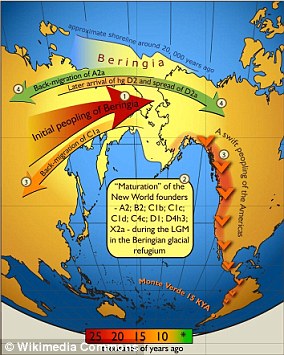Sent in by William. Hyenas in the Arctic – is this evidence of pole shift. However, the main stream mantra is that this is, instead, evidence of climate change – in the past. The inference is that if it happened millions of years ago there is nothing to contradict the idea global warming will not melt the Arctic in the next 100 years or so (or whatever the activists want to believe). Go to www.sciencedaily.com/releases/2019/06/190618070804.htm … and various other media sources. In the modern world hyenas inhabit savannah habitats in Africa and Asia, being both hunters and scavengers. They are known to have inhabited Europe during the Ice Age (prior to the Late Glacial Maximum for example) and bones of hyenas have commonly been found in geological contexts in Britain – dating back hundreds of thousands, if not millions of years ago. The hyenas found in the Yukon are said to be different – living in what they say was a frigid Arctic landscape (on the basis mainstream doesn't think the poles can shift this way or that way). It's a moot point and has never really been a possibility that has been explored – or at least not since the 19thj century. Most of science has moved on since Victorian times – but not the idea of gradualist change. One would think that hyenas in the Yukon would represent more than a little bit of gradualism – but there you are. The study is published in Open Quaternary journal (June 11th, 2019) and relates to hyena teeth found in the Yukon. The study is said to confirm the teeth are what was since guessed at previously and they note fossils of hyena have also been found far to the south, in what is now the US. They have also been found in Asia as far north as Mongolia, and Europe (sporadically rather than as a permanent feature of the environment). Temperatures must have been warmer – but they are talking about an Ice Age date. It is thought they could have reached North America by way of the Bering land bridge (which came and went on several occasions as sea levels caused it to submerge and emerge).
See also www.dailymail.co.uk/sciencetech/article-7153369/Ancient-hyenas-lived-ARC… … where it is again assumed that hyenas were living in a cold and dark (for half of the year) environment, and ancient hyenas were adapted to the weather of that region.

